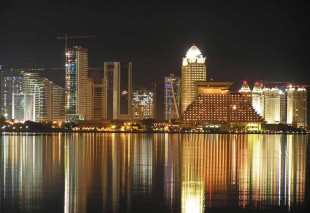

Doha rises above July challenges for hoteliers

Doha hotels experienced 5.5 percentage point growth in occupancy to 47.6% in July, driving RevPAR to $95.91 and making it one of the strongest performing markets in the region.
According to the latest HotStats survey by TRI Hospitality Consulting Middle East, strong banqueting revenues drove total revenue up 15.2%, which coupled with efficient operating expenses resulted in an 86.7% rise in GOPPAR to $53.22.
Overall, hotels in the Middle East were challenged by difficult market conditions in July, owing to the low season coupled with a fall in demand during Ramadan. Iftar offers during the holy month, however, led to an increase in banqueting profits across the region.
“Doha was one of the strongest performing hotel markets in region during July with a rise in all key performance indicators," said TRI Consulting managing director Peter Goddard.
"The growth in top-line revenues was primarily due to a 5.5 percentage point rise in occupancy driven by increased regional leisure demand."
A 4.5% growth in RevPAR to US $57.36 drove average room rates in Abu Dhabi to increase by 5.1% in July. However, although banqueting revenues resulted in a 2.5% growth in top-line revenues, operating expenses drove GOPPAR down, resulting in a loss of $12.44.
Goddard added: “Although the hotels in Abu Dhabi recorded a trading loss during July, the market is witnessing encouraging indicators, especially with a revival in average rate performance. The market has suffered from a steady decline in average rates since August 2011, however this trend is starting to reverse with hotels undergoing a steady growth in average rates during the past five months, fuelled by strong regional visitor demand.
"We expect this trend to continue throughout the remainder of the year, especially as hoteliers gear up for the peak season.”
In Riyadh, the reduction in rates impacted RevPAR levels, which fell 8.3% during the month, while food and banqueting demand boosted the revenue per available room by 7.2%, which drove top-line revenue growth and saw GOPPAR rise 10.8% to $53.25.
“Although Riyadh hotels saw overall room revenue fall during July, a significant increase in banquet revenues driven by iftar events, helped hotels record a 7.2% growth in top-line revenues. The holy month of Ramadan historically results in substantially lower levels of demand and July was no exception with the overall market achieving an average occupancy of 38.3%.
“Even though the hotel market was depressed during the month, year-to-date performance remains strong with occupancy levels up 6.6 percentage points to 63.8 percent,” commented Goddard.
Hotels in Cairo experienced growth across all key performance indicators in July. Occupancy was up 8.7 percentage points, while ARR rose 1% to $114.85, driving a 43.4% growth in RevPAR.
“Cairo hoteliers have been facing challenging conditions for the past two years, however the new political situation in Egypt has brought much needed market stability. Although occupancy levels are still marginally lower than 2013 levels, the growth in performance levels witnessed in previous months is a positive sign and indicates the market is on track to achieve performance levels over and above those experienced in 2013,” said Goddard.